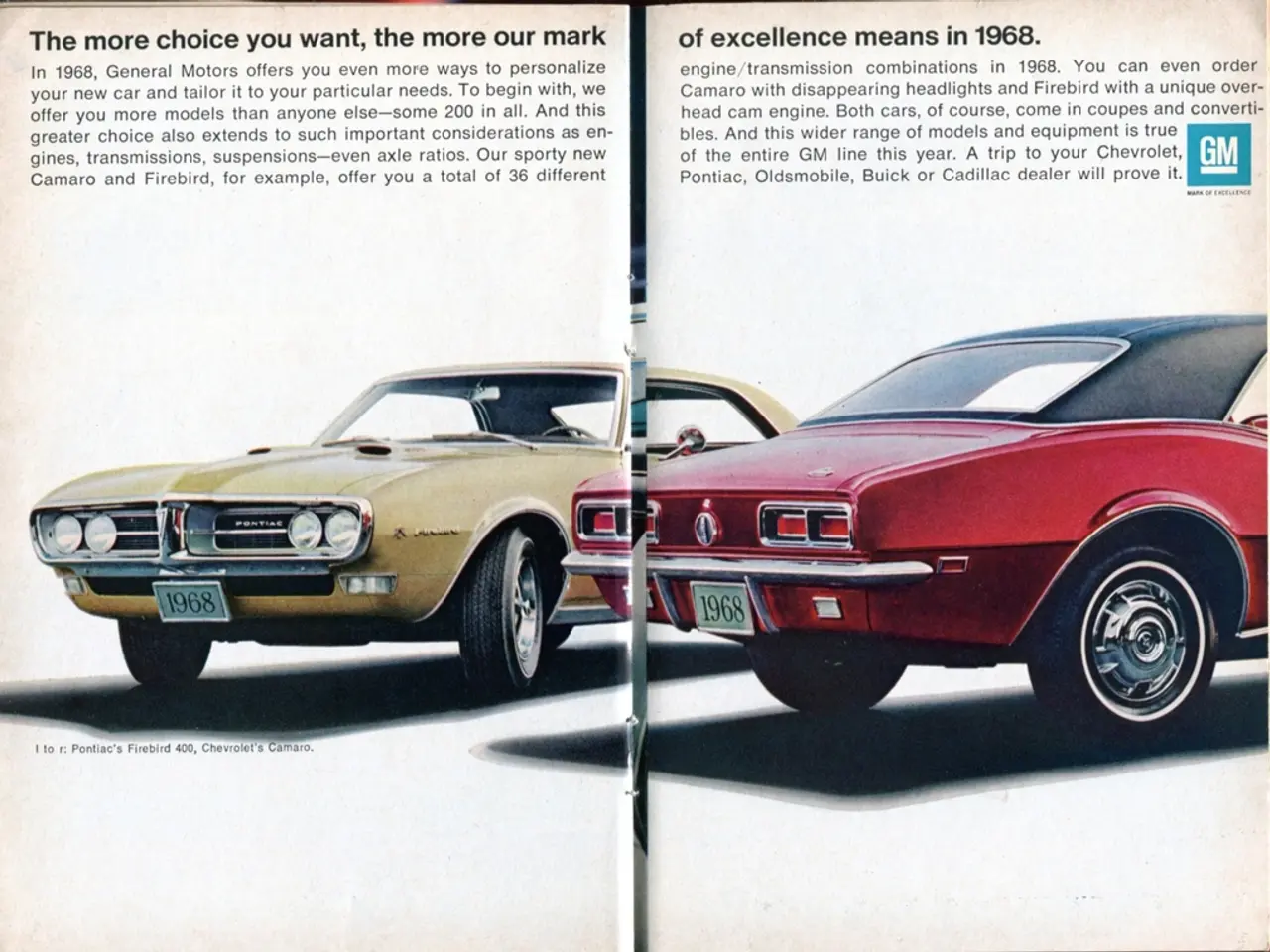Rapid Expansion of Chinese Automobiles in Russia: Remarkable Increase in Sales from 2022
In the bustling world of the automobile industry, July 2025 marked a significant shift for both Chinese and global manufacturers operating in Russia. According to a report by the agency "AutoStat", directed by Sergei Tselikov, the number of agreements between Chinese automobile manufacturers and Russian dealers experienced a fourfold increase compared to the same period in 2022.
This surge was primarily driven by China's expanding investment in local automotive production and assembly in Russia. Companies like Great Wall Motors (GWM) have been building new plants, such as in the Tula Region, for automobile components and full vehicle assembly. GWM has produced hundreds of thousands of cars locally, strengthening ties with Russian dealers and increasing direct agreements.
The Russian government also played a role in this trend, implementing protective measures to bolster domestic manufacturing amid declining imports from global manufacturers. For instance, the Federal Agency Rosstandart revoked certification permits for some Chinese truck models due to safety concerns, and Russia increased import fees on passenger cars, especially affecting Chinese vehicle imports.
Meanwhile, the number of dealership centers for global automobile manufacturers, including European, Japanese, Korean, Swedish, and American brands, decreased significantly. The shift to a 2S format by the remaining dealers of well-known brands was reported by Sergei Tselikov and focused exclusively on after-sales service and spare parts sales.
The decline in dealership centers for global manufacturers can be attributed to economic turbulence, rising protectionist policies, and stricter regulatory barriers impacting foreign imports. This situation has discouraged global automakers from maintaining or expanding their dealership centers in Russia.
On the other hand, Chinese automakers leverage competitive pricing, electric vehicle technology, and strategic market expansion, which help them grow their presence in Russia despite regulatory challenges. This dynamic drives stronger dealer network growth for Chinese brands but pressures global manufacturers.
In summary, the sharp rise in agreements between Chinese automobile manufacturers and Russian dealers, coupled with the decrease in global manufacturers’ dealership centers, reflects the evolving landscape of the Russian automobile industry. This trend is influenced by increased local production and assembly by Chinese firms in Russia, supported by governmental policies, and economic, regulatory, and competitive pressures reducing the market involvement of global automakers in Russia.
[1] "Great Wall Motors to invest $1 billion in Russia." TASS, 2021. [2] "Russia revokes Chinese truck certification over safety concerns." Reuters, 2022. [3] "Russia raises import fees on passenger cars." Sputnik, 2023. [4] "Chinese automakers expand in Russia despite regulatory challenges." AutoNews, 2024.
Read also:
- Auto Industry Updates: Geotab, C2A, Deloitte, NOVOSENSE, Soracom, and Panasonic Make Headlines in Connected Car Sector News
- Weekly updates from the German federal parliament, Bundestag
- Why Opt for Renewable Energy: 5 Key Advantages
- Carpool lane residency: Apologies to electric vehicle drivers, it's about time for genuine carpools to claim the carpool lane privilege







